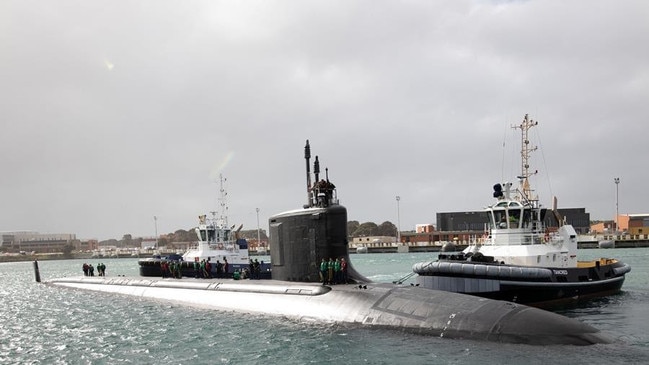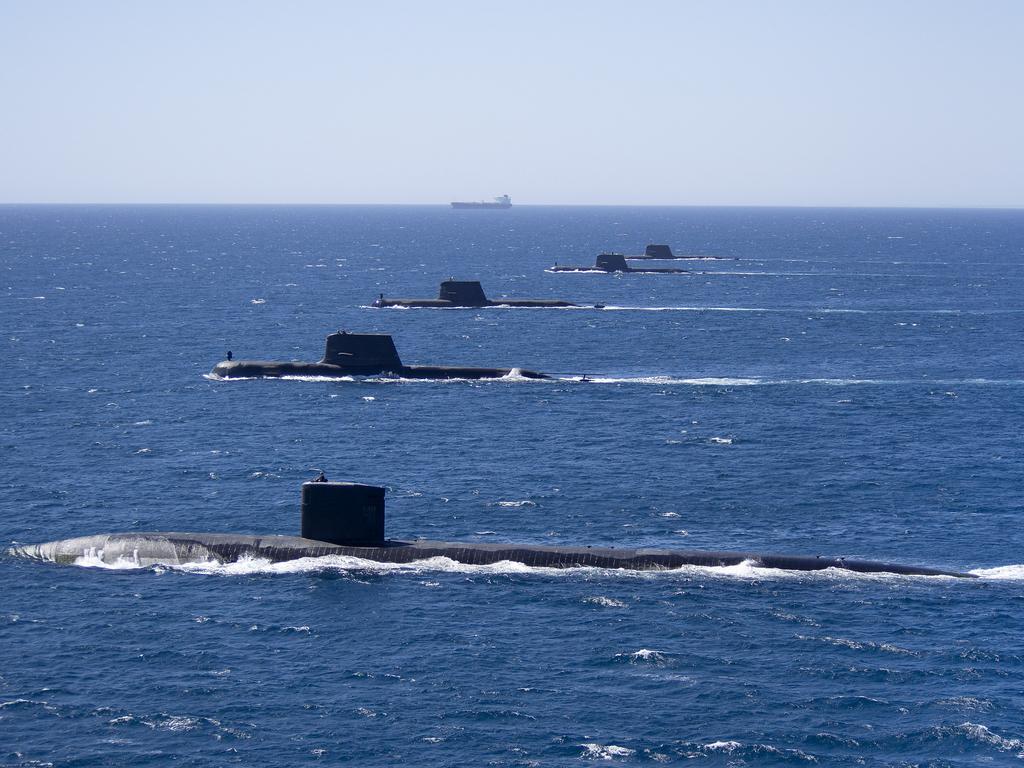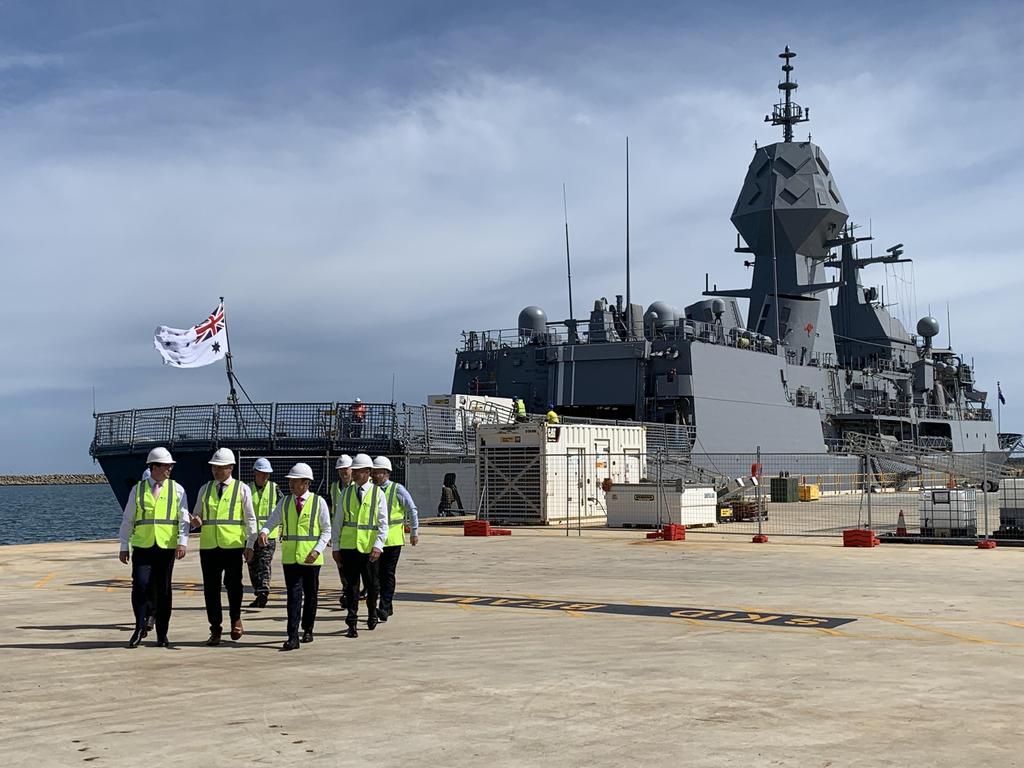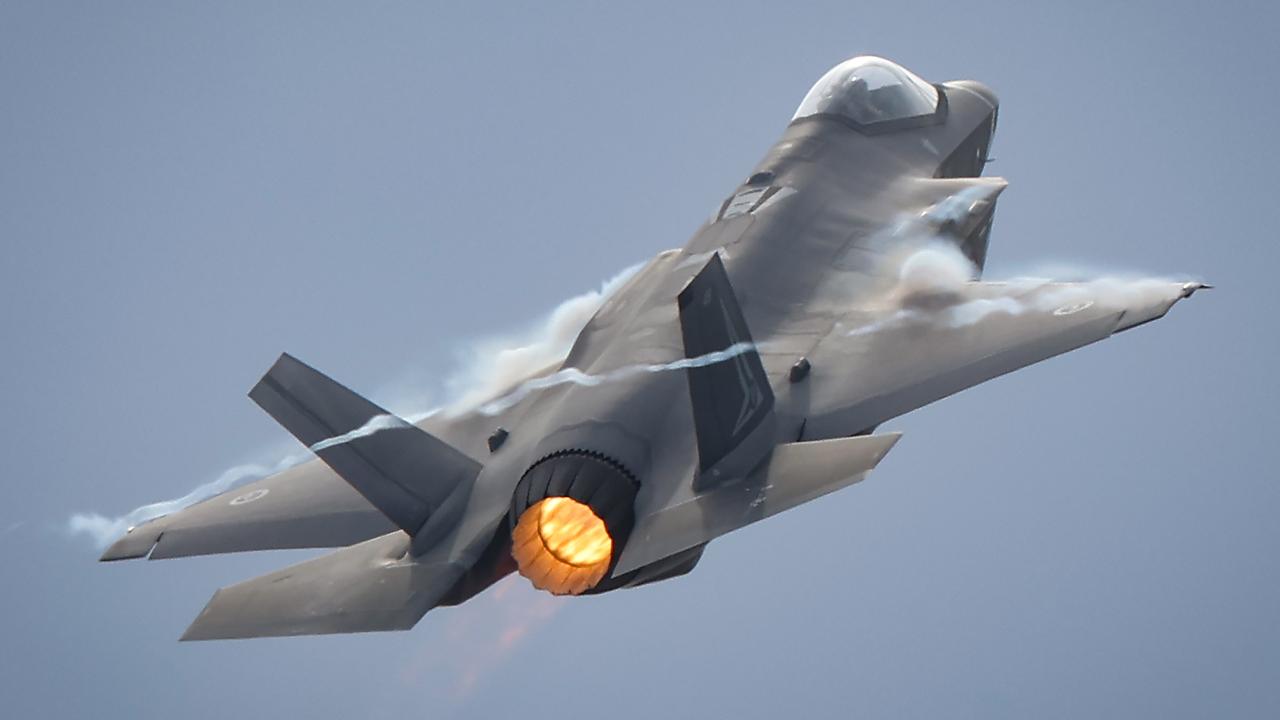Defence changes tack for HMAS Stirling AUKUS approvals
The move has prompted calls from the opposition for greater clarity from the government on the change in approvals plans for the crucial works at HMAS Stirling in WA.

Defence has quietly pulled its environmental application for the crucial early works needed to begin hosting the first AUKUS nuclear-powered submarines, less than three years before the first of the boats is scheduled to arrive.
The application for federal environmental approvals for maritime upgrades as part of the priority infrastructure works at the HMAS Stirling naval base at Garden Island, just off the coast of Rockingham in Perth’s south, was formally withdrawn last week.
The application concerned some initial work needed to begin to make the naval base suitable for hosting US and British nuclear submarines that will start rotating through the site from 2027.
The withdrawn plans specifically covered upgrades to the main Diamantina Pier to provide safe berthing of up to three nuclear submarines during operation and one nuclear submarine during maintenance activities.
It also included increasing the berthing capacity for smaller support vessels, including force protection vessels, harbour tugs and dive boats, and upgrades at the armament wharf “to provide safe berthing for one (nuclear submarine) during the loading and unloading of explosive ordnance”.
Defence did not provide any on-the-record explanation for the change in plans.
However, The Australian understands the move will allow Defence to submit one application for environmental approvals for the initial works and what up until now was a separate approval process for works that will affect the marine environment around the base’s main pier and the controlled industrial facility that will handle low-level contaminated materials from the submarines. The change means the entirety of those works will be subject to a single round of community feedback.
There already has been some criticism of the plans to store contaminated materials – such as personal protective equipment and tools used to maintain the nuclear submarines – at HMAS Stirling rather than at a dedicated waste repository farther from the ocean and major population centres.
While it is unclear at this stage whether there will be delays as a result of the decision to change the approach to environmental approvals, the decision will do little to quell rumours of concerns among some defence observers about the readiness of HMAS Stirling to begin hosting submarines in 2027.
Opposition defence spokesman Andrew Hastie said the government needed to shed more light on the reasons for the change.
“This is a concerning development considering we are less than three years away from the beginning of Submarine Rotational Force – West,” he said. “Labor must immediately explain why plans for priority infrastructure works have been withdrawn, and whether this will create delays for SRF – West. When it comes to defence, the Albanese government is lethargic and weak.”
The federal government recently announced it would pump billions of dollars into a new defence facility in Perth’s south as part of the AUKUS plans.
Defence Minister Richard Marles said the government had committed $127m for studies and early works for the site at Henderson, across the water from HMAS Stirling, which will be the main maintenance site for the AUKUS submarines, the navy’s general purpose frigates and army landing craft. That precinct is expected to support 10,000 jobs. Mr Marles acknowledged that sourcing so many workers would be one of the project’s “great challenges”.
Last month a highly regarded US naval analyst put forward an alternative AUKUS plan in a paper prepared for members of congress in which eight new US-operated Virginia-class submarines would operate out of Australia, instead of the boats being sold to Australia.
The US election presents another short-term uncertainty for the AUKUS program.
Richard Spencer, a secretary of the US Navy under Donald Trump, is chairman of Perth-headquartered shipbuilder Austal.
He told the company’s annual general meeting on Friday the program would remain on track regardless of who won the election. “That’s for a bunch of reasons,” Mr Spencer said. “One, just the national security aspect of it, as it pertains to both the US and our closest ally over here in Australia.
“Two, it has so much more far-reaching consequences than just national security. It really is a one plus one equals three piece of statecraft, which I think is the reason that it has such bipartisan support in the US. There’s very little downside. Whether Trump or Harris gets in, I don’t think AUKUS is in threat.”








To join the conversation, please log in. Don't have an account? Register
Join the conversation, you are commenting as Logout